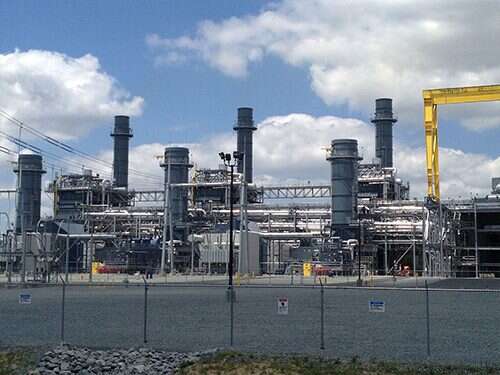Natural gas can carry as severe a climate impact as coal, a new study from the United States warned late last week, just as an Ontario power producer proposed a new gas-fired generating station in the Niagara Region city of Thorold.
Even if a natural gas system leaks as little as 0.2% of the product into the atmosphere, “it’s as bad as coal,” Brown University environmental policy expert Deborah Brown, lead author of the new study in the journal Environmental Research Letters, told the New York Times. Despite years of industry spin promoting gas as a “bridge” to a renewable energy future, “it can’t be considered a good bridge, or substitute,” Brown added.
The 0.2% leakage rate “is a tiny margin of error for a gas that is notorious for leaking from drill sites, processing plants, and the pipes that transport it into power stations or homes and kitchens,” the Times writes. Brown’s peer-reviewed study “adds to a substantial body of research that has poked holes in the idea that natural gas is a suitable transitional fuel to a future powered entirely by renewables, like solar and wind.”
Natural gas, often rebranded by climate hawks as fossil gas, “is made up mostly of methane, which is a far more potent planet-warming gas, in the short term, than carbon dioxide when it escapes unburned into the atmosphere,” the Times explains. “And there’s mounting evidence that methane is doing just that: leaking from gas systems in far larger quantities than previously thought. Sensors and infrared cameras are helping to visualize substantial leaks of methane from oil and gas infrastructure, and increasingly powerful satellites are detecting ‘super-emitting’ episodes from space.”
Click here for the rest of this story.











